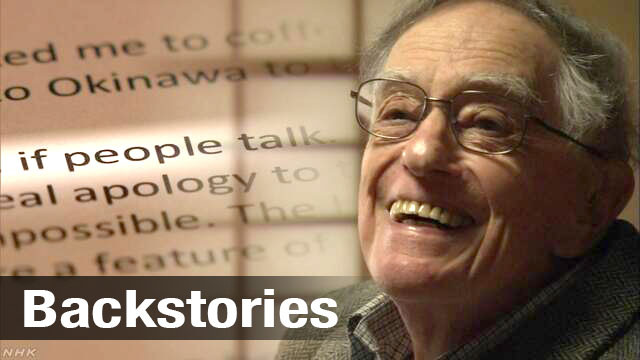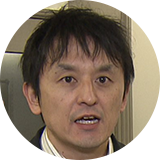On March 29, a month after Keene died, people gathered in the library at Columbia University in New York for a translation prize ceremony.
Keene had been deeply involved in the Japan-U.S. Friendship Commission Prize for the Translation of Japanese Literature, and his picture was on display at the ceremony this year. Recipients of the award and other participants talked about their memories of Keene.
Keen died in Tokyo in February at the age of 96. He frequently visited Japan while studying Japanese literature and translating works of Japanese writers. He was a personal friend of several renowned Japanese writers, including Junichiro Tanizaki, Yasunari Kawabata and Yukio Mishima. Keene has been credited with helping to create an environment in which Japanese novelists could gain worldwide acclaim.
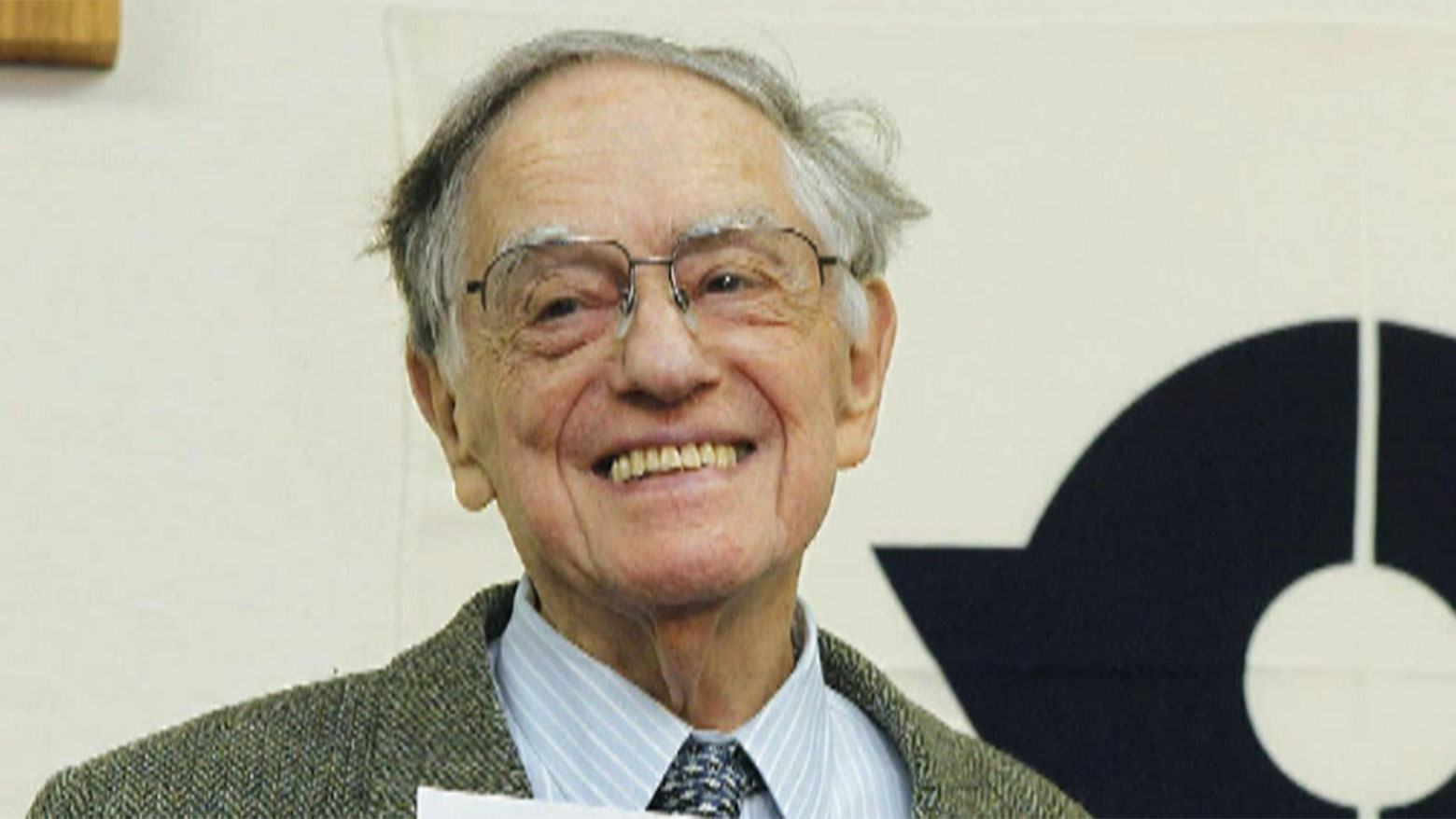
One of the people giving their memories of Keene had a slightly different perspective from the other speakers. Professor Charles Inouye of Tufts University exchanged many emails with Keene in the last years of his life. At the ceremony, he revealed some of them.
“...the visit of the Prime Minister to the Yasukuni Shrine has stung me. For a time, twenty and more years ago, I was afraid the Left would take over Japan; now it is the Right.”
(December 27, 2013)
Inouye began corresponding with Keene after winning another prize for translation. Inouye says they exchanged nearly 50 mails, sometimes discussing small daily occurrences, others expressing opinions on literature.
He says; “we started to write emails back and forth and he revealed to me a side of him that I think I never would have known had I not gotten to know him.”
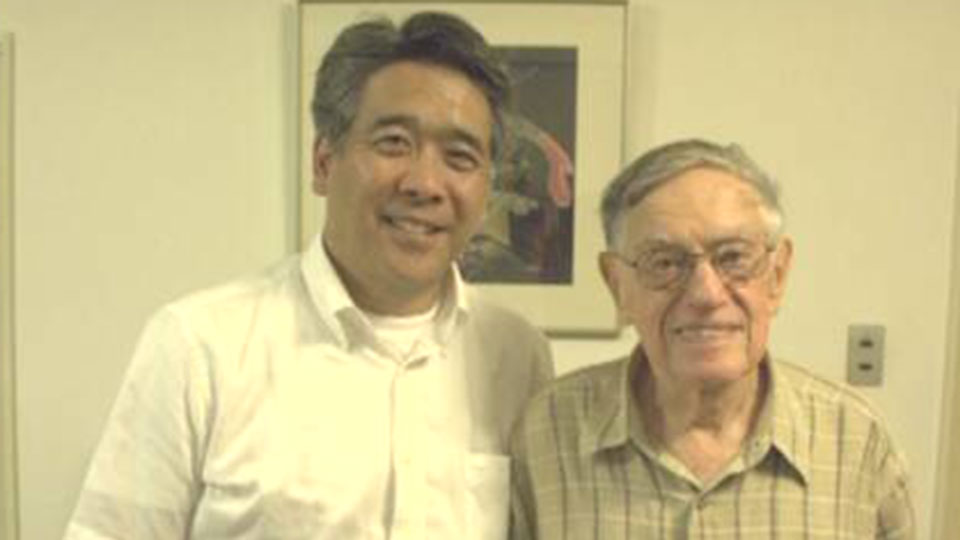
In 2014, he wrote about his dismay at the result of a gubernatorial election in Tokyo. Former Japanese prime minister Morihiro Hosokawa had run on a platform of ending Japan's reliance on nuclear energy in the wake of the Fukushima nuclear accident. But he lost to a candidate backed by the Liberal Democratic Party.
“I had hoped against hope that Hosokawa would win, and had written a statement for his campaign, but the Jimin-tō (Liberal Democratic Party) man, about whom no one knows anything, won easily. I felt doubts about democracy. I suppose that Hosokawa's defeat was due to the belief that the Jimin-tō will promote the economy. Hosokawa had only one string to his bow--end atomic energy, and that was not enough for the majority. Also, one gets the feeling that the inhabitants of Tokyo have forgotten the Tōhoku disaster, or remember it only when they buy cabbages and see the tag saying it was grown in Fukushima. No doubt there will be a record number of people going abroad during Golden Week. Equally no doubt, there will not be a factory built in Fukushima.”
(February 13, 2014)
Keene wrote several times about his concerns that Japan was moving away from its focus on maintaining peace.
In December 2013, Prime Minister Shinzo Abe visited Yasukuni Shrine, which honors Japan's war dead including leaders convicted of war crimes after World War Two. The visit provoked angry reactions in China and South Korea. Abe has been proposing constitutional reforms, including of Article 9 which renounces war and prohibits Japan from maintaining a military.
“I was dismayed to see that in an Asahi poll, the majority of high school and college students are unconcerned about the censorship that had already become law (I think), the effect Abe's worship at Yasukuni has on neighboring countries, or the revision of the constitution. The decision of the Ministry of Culture to force schools in one small town to adopt a "balanced" history book (meaning a justification of Japanese military actions in China and Korea) has hardly been mentioned in the press.”
(January 4, 2014)
“The monthly magazines have learned articles on "Why Japanese Hate the Koreans" and also "Why the Koreans Hate the Japanese". Ugh.”
“A friend of mine at one of the local UNESCO circles told me yesterday that she was the only person to object to the statement made by the president that Japan annexed Korea because it was a backward country and the Japanese felt they must help the Koreans to enter the modern world.”
(February 13, 2014)
His concern for peace has its roots in his experience of war more than 70 years ago. He learned Japanese as a translator in the Navy and engaged in the questioning of Japanese troops. In the Battle of Okinawa, he called on Japanese residents to surrender.
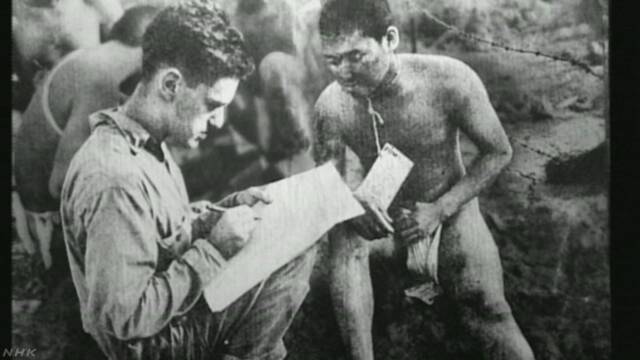
His correspondences also explained his determination to become a Japanese citizen.
“When I am asked by masochistic Japanese what has made me devote my life (and future death) to a country with the failings of Japan, I answer truthfully, "the Japanese people". Not many people understand.”
(February 26, 2014)
Inouye explains: “He wanted to say the things that he had always wanted to say but couldn't say as an American because that would have sounded like a criticism of a different kind. So this is a criticism not as an outsider but a criticism of Japan as an insider.”
But Keene also expressed concern that Japanese people did not fully understand his position.
“I wish I could do something more effective, as you suggest, but I am afraid that I am listened to only when I say how much I love Japan, not when I say what is wrong. I don't want Japan to suffer war once again. If there is another war it may not only end all wars but everything else.”
(January 14, 2014)
Inouye says, “Having experienced war himself, having him seen Japan prosper in the peace after the war and then seen Japan slowly forget the lessons that had been learned and so carelessly move back toward a more military way of doing things. That really disturbed him."
Inouye says what worried Keene more than anything was the idea that Japan would not remain a peaceful place.
These emails are posted with the permission of Professor Charles Inouye and Seiki Keene, the adopted son of Donald Keene.
